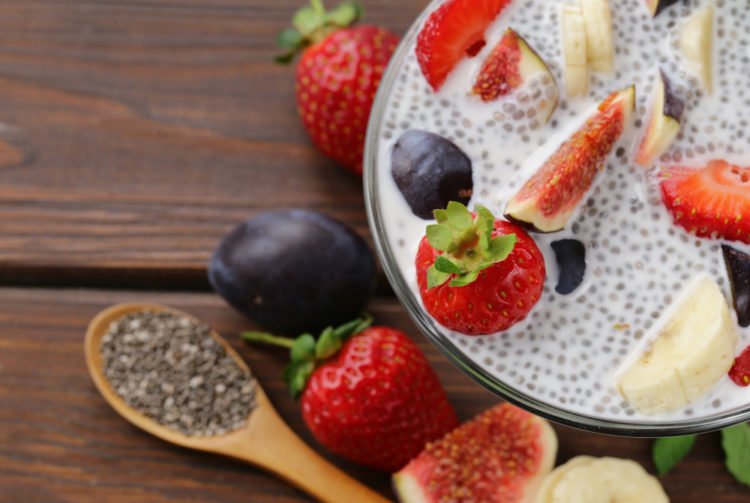
It’s not surprising we are hearing increasingly more about the health benefits of nature’s super foods – seeds. They’re packed to the hilt with anti-oxidants, are tasty and easy to eat, but exactly which ones should you include in your diet?
In this article we share our top 3 super seeds, their health benefits and why they should be part of your daily diet.
1. Chia Seeds – For Improved Brain Function And Liver Protection
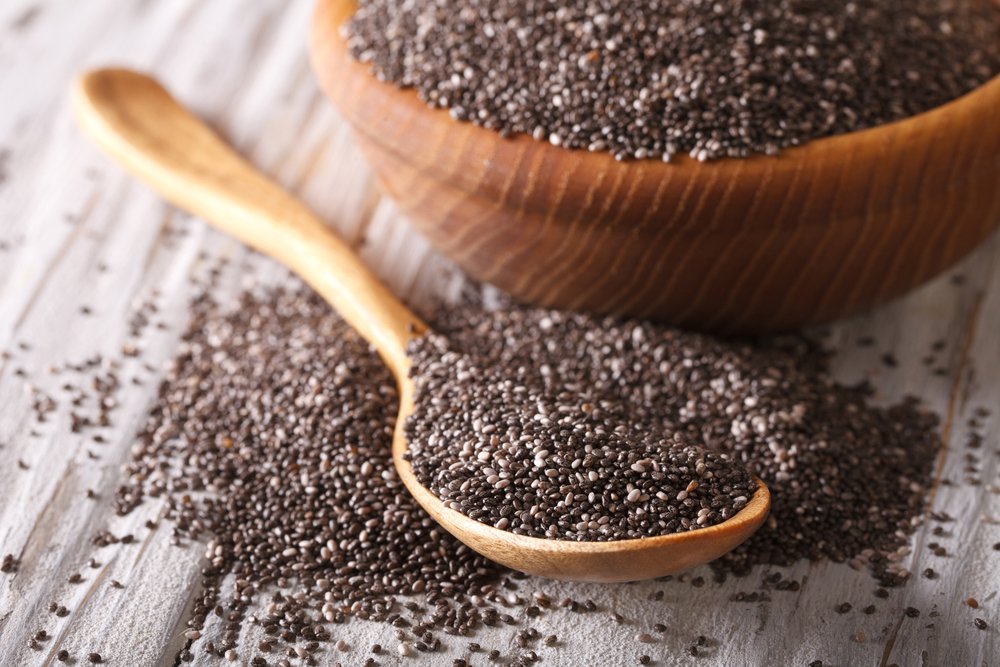 Chia is becoming a favourite health choice for every day diets and especially vegetarian diets.
Chia is becoming a favourite health choice for every day diets and especially vegetarian diets.
Chia seeds deliver a massive amount of nutrients with very few calories They have been around for centuries, but only recently has the health industry become besotted with their benefits as a super food.
Chia seeds were an important food for the Aztecs and Mayans thousands of years ago. They were prized for their ability to provide sustainable energy. Chia is in fact the ancient Mayan word for “strength.”
Chia seeds are high in quality protein, much higher than most plant foods. Protein is the most weight loss friendly macronutrient and can drastically reduce appetite and cravings.
Chia is also one of the richest known sources of dietary fiber. One serving of chia seeds (about 28 g) contains 9 g of dietary fiber. The recommended fiber intake is 28 to 36 g per day, but most people eat much less, about 15 g. Fiber helps to lower cholesterol and blood pressure, promote healthy digestion, and prevent disease (including heart disease, cancer, and stroke).
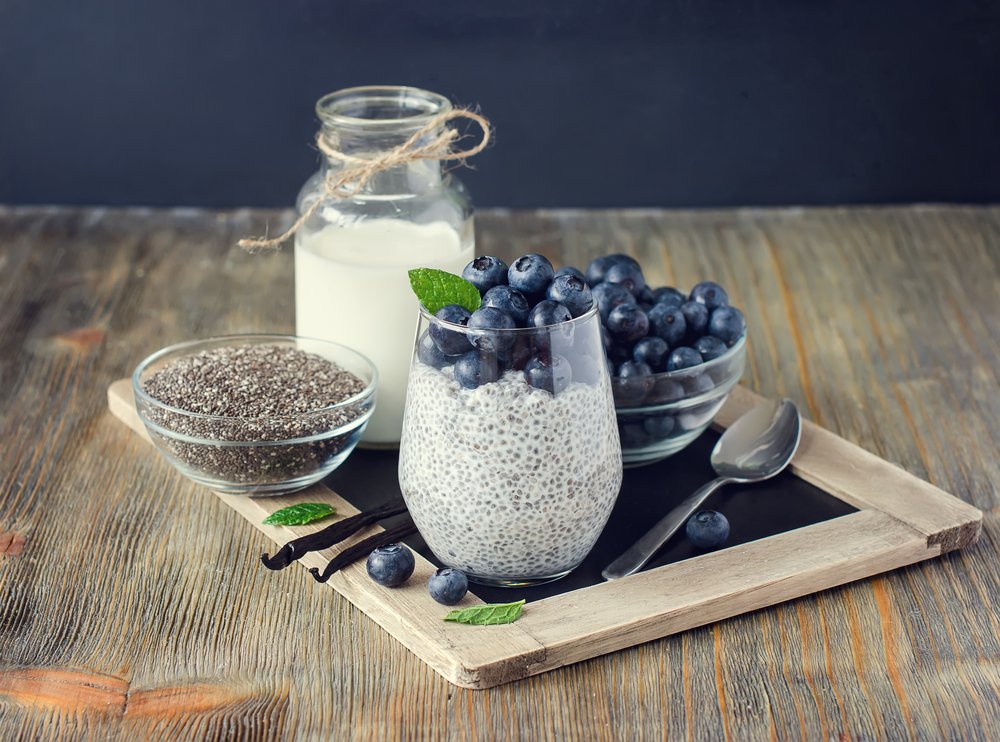 The many nutritive qualities of chia seeds listed above have great potential for providing a variety of health benefits to humans if added into the diet. Although human studies are still in their infancy, some of the potential benefits of chia seeds include lowering cholesterol, reducing blood pressure, controlling blood sugar, and more.
The many nutritive qualities of chia seeds listed above have great potential for providing a variety of health benefits to humans if added into the diet. Although human studies are still in their infancy, some of the potential benefits of chia seeds include lowering cholesterol, reducing blood pressure, controlling blood sugar, and more.
The consumption of chia seeds may increase blood levels of the long chain omega-3 EPA by 30% says a new study from the Appalachian State University and the University of North Carolina.
Chia seeds are a source of alpha-linolenic acid (ALA), a type of “short-chain” omega-3 fatty acid, whereas fish is a source of the “long-chain” fatty acids eicosapentaenoic acid (EPA) and docosahexaenoic acid (DHA). While growing research has linked consumption of EPA and DHA to heart health, improved brain function and possible other health benefits such as improvement in depression or rheumatoid arthritis, studies are now suggesting that ALA may bring about redistribution associated with heart and liver protection.
The seeds are gluten-free, which also makes them appealing to people with celiac disease or an aversion to gluten.
2. Flax Seeds – Help Modulate Appetite
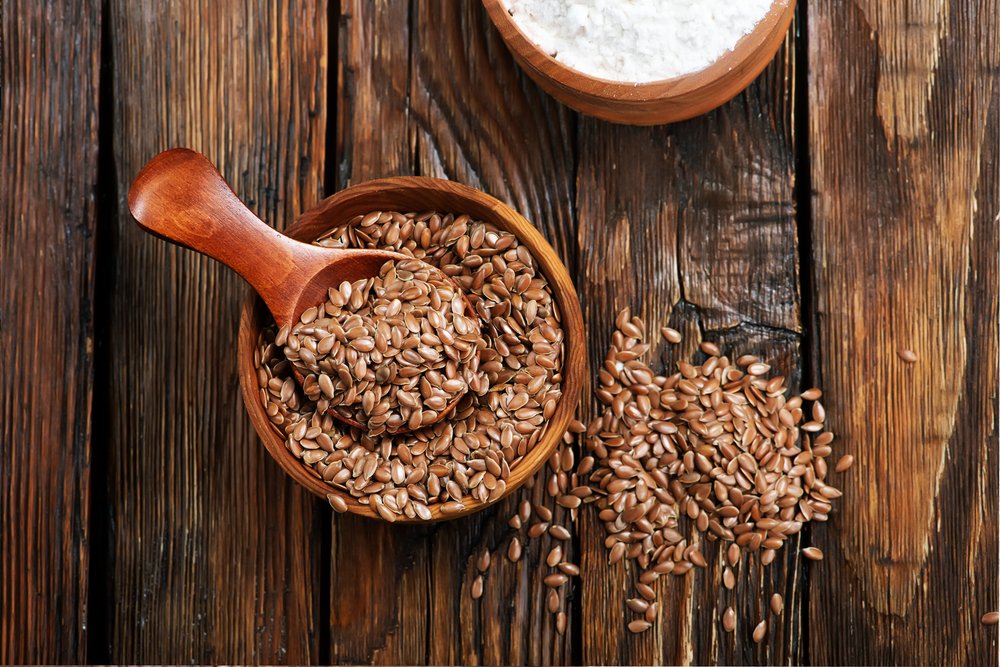 This seed is easy to add into most dishes and has exceptional health benefits especially for weight management and menopause conditions. Research has shown that flax seeds are able to suppress rises in blood levels of lipids after a meal and modulate appetite.
This seed is easy to add into most dishes and has exceptional health benefits especially for weight management and menopause conditions. Research has shown that flax seeds are able to suppress rises in blood levels of lipids after a meal and modulate appetite.
According to research by the University of Copenhagenflax fiber has been shown to be effective in suppressing appetite and supporting weight loss. Flaxseeds are a good source of dietary fibers, and a large proportion of these are water-soluble viscous fibers.
The researchers reported that “Both Flax drink and Flax bread resulted in decreased plasma total and LDL-cholesterol and increased fat excretion, but the food matrix and/or processing may be of importance. Viscous flaxseed dietary fibers may be a useful tool for lowering blood cholesterol and potentially play a role in energy balance.”
The main health benefits of flax seed are due to its rich content of Alpha-Linolenic Acid (ALA), dietary fiber, and lignans. The essential fatty acid ALA is a powerful anti-inflammatory, decreasing the production of agents that promote inflammation and lowering blood levels of C-Reactive Protein (CRP), a biomarker of inflammation.
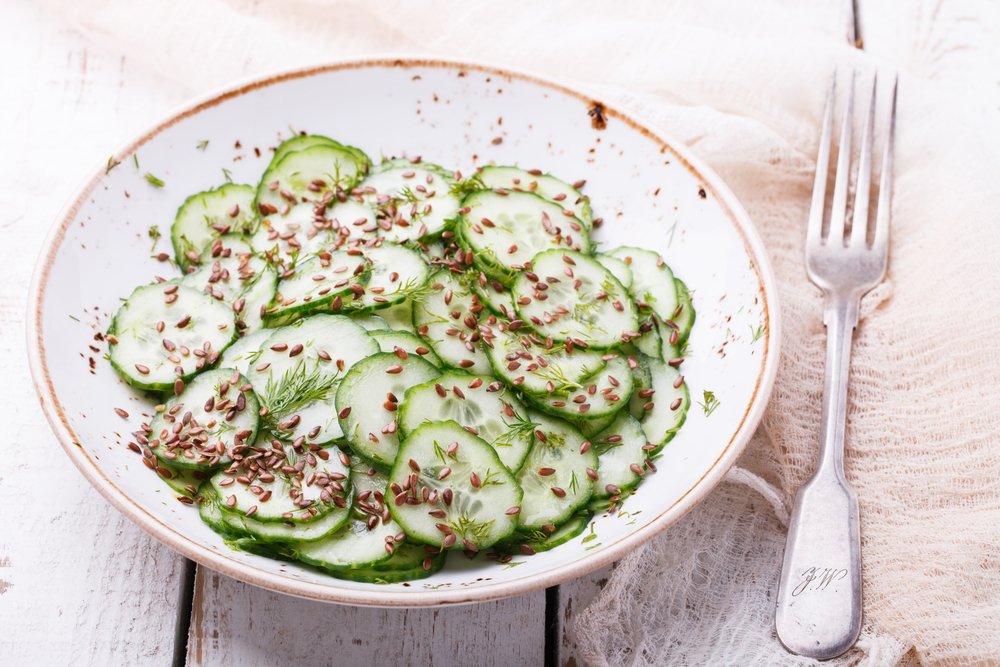 They’re also attributed with reducing the symptoms of PMS and menopause, and potentially reducing the risk of developing breast and prostate cancer. The fiber in flax seed promotes healthy bowel function.
They’re also attributed with reducing the symptoms of PMS and menopause, and potentially reducing the risk of developing breast and prostate cancer. The fiber in flax seed promotes healthy bowel function.
One tablespoon of whole flax seed contains as much fiber as half a cup of cooked oat bran. Flax’s soluble fibers can lower blood cholesterol levels, helping reduce the risk of heart attack and stroke.
Ground flax seed provides more nutritional benefits than does the whole seed. Grind the seeds at home using a coffee grinder or blender, and add them to cereals, baked goods and smoothies.
3. Sesame Seeds – Help Manage High Blood Pressure
Sesame seeds may be the oldest condiment known to man. They are a very good source of manganese and copper, but they are also a good source of calcium, magnesium, iron, phosphorus, vitamin B1, zinc and dietary fiber.
In addition to these important nutrients, sesame seeds contain two unique substances: sesamin and sesamolin.
Both of these substances belong to a group of special beneficial fibers called lignans, and have been shown to have a cholesterol-lowering effect in humans, and to prevent high blood pressure and increase vitamin E supplies in animals. Sesamin has also been found to protect the liver from oxidative damage.
The seeds are also very valuable sources of dietary protein with fine quality amino acids that are essential for growth, especially in children. Just 100 g of seeds provide about 18 g of protein (32% of daily-recommended 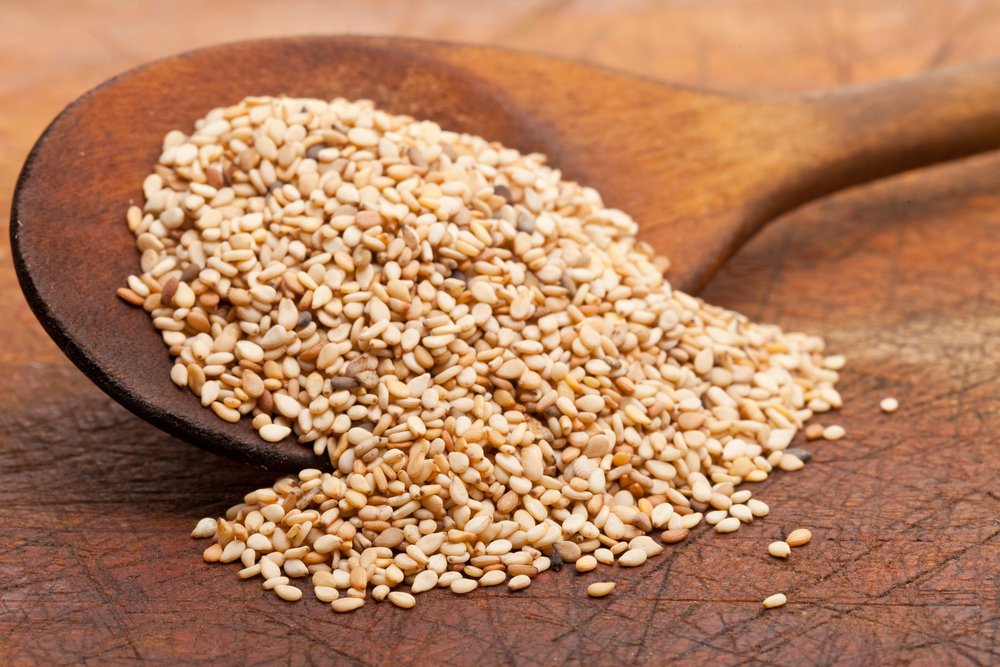 values).
values).
They also contain folic acid. 100 g of sesame contains 97 µg of folic acid, which is about 25% of recommended daily intake. Folic acid is essential for DNA synthesis. When given to expectant mothers during their peri-conception period, it may help prevent neural tube defects in the newborns.
Sesame seeds have some of the highest total phytosterol content of seeds. Phytosterols are compounds found in plants that have a chemical structure very similar to cholesterol, and when present in the diet in sufficient amounts, are believed to reduce blood levels of cholesterol, enhance the immune response and decrease risk of certain cancers.
Sesame seeds are also high in zinc. Zinc is thought to be good for sexual health (it can help testosterone and sperm production in men), so eating sesame seeds could improve your sex life.
This rich seed contains linoleic acid, an omega-6 fatty acid that may help control harmful cholesterol. Toasting amplifies flavor and adds a nice crunch to salads.
Not only are seeds super healthy for you, they are also great to eat. However, remember there’s only one way to derive the best nutrition from seeds and that is to eat them raw and also as part of a healthy balanced diet!
[“source=hindustantimes”]
